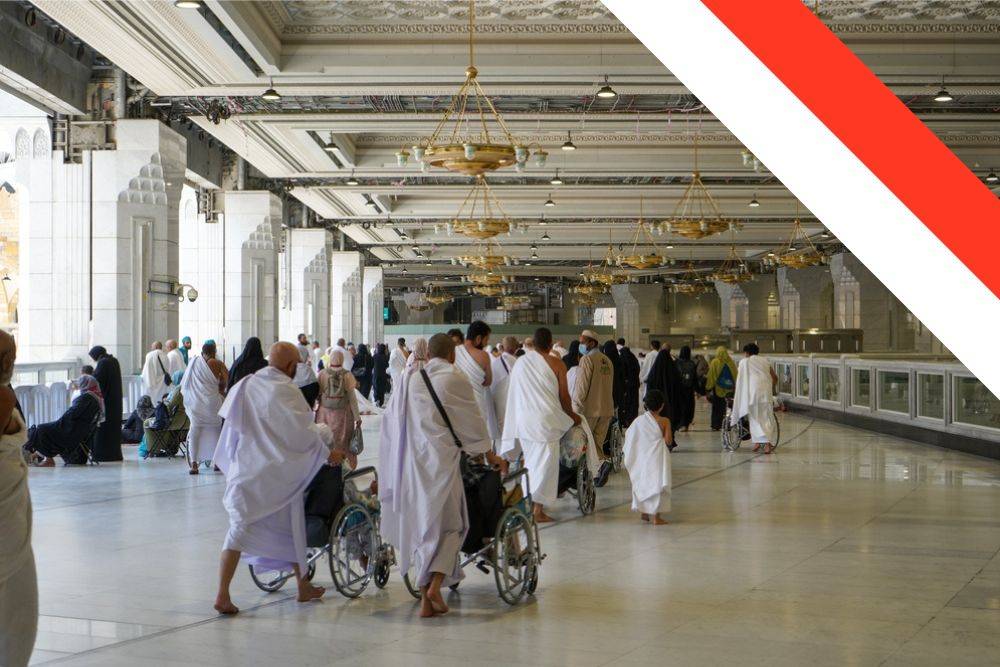A final total of 376 Indonesian hajj pilgrims have died this year, with most of them caused by heat stroke. This alarming trend highlights the health and safety conditions of the pilgrims during the Hajj season.
The Importance of Hajj and its Challenges for Indonesian Pilgrims
Hajj is an annual Muslim pilgrimage requiring every physically and financially capable Muslim to visit Mecca, Saudi Arabia. Apart from being a religious obligation, Hajj is also one of the five pillars of Islam that Muslims must perform in their lifetime. Indonesia has one of the largest Muslim population in the world. Therefore, it is one of the countries with the most significant number of Hajj pilgrims each year. Thousands of pilgrims from various regions in Indonesia flock to make lengthy preparations for this pilgrimage, which is a spiritual moment and a severe physical test.
Causes of Death from Heat Stroke
Heat stroke is a significant cause of death among Indonesian pilgrims, mainly due to the extremely hot environment in Saudi Arabia. Heat stroke is a serious condition that occurs when a person’s body temperature rises drastically. The increase would exceed the body’s ability to regulate temperature effectively. It often occurs due to overexposure to heat in hot and humid environments such as Mecca, especially during the summer season with extreme temperatures. Under these conditions, the body can no longer cool itself effectively through mechanisms such as sweating. Subsequently, heat stroke can cause serious damage to organs and, in extreme cases, death. Hence, Indonesian pilgrims are at a high risk of heat stroke during their pilgrimage to Saudi Arabia.
Safety Measures
The Indonesian government and various organisations have implemented several safety measures to reduce the impact of heat stroke. These measures include mandatory pre-departure medical check-ups for pilgrims to ensure their physical condition is adequate before departing. In addition, it is recommended that pilgrims wear light and breathable clothing to regulate body temperature, and adequate fluid consumption and regular rest are essential to prevent fatigue and heat stroke. For emergency response, medical teams have also been prepared to provide immediate assistance in heat-related cases that require urgent medical attention.
Challenges
Despite this, some challenges remain. Firstly, the vast number of pilgrims in the holy city of Mecca makes managing heat-related issues extremely difficult. Furthermore, the existing infrastructure in Mecca, especially during the Hajj season, is often incapable of effectively handling medical responses in the face of emergencies such as heat stroke. In addition, some pilgrims may not adhere to recommended safety guidelines. They may not drink enough water or take necessary breaks, increasing the risk of developing heat stroke.
Government Response
The Indonesian government has taken proactive measures to address the health concerns of Hajj pilgrims. These measures include increased monitoring of pilgrims to ensure compliance with safety protocols, expansion of the number of medical teams and medical facilities to improve response to heat-related emergencies, and the launch of a public awareness campaign aimed at educating pilgrims about the risks of heat stroke and effective ways to prevent it. These measures reflect the government’s commitment to ensuring a safer and more comfortable Hajj experience for all pilgrims.
Health Implications
Heat stroke not only causes death but can also leave long-term health impacts for those who survive. The biggest danger is organ damage caused by extreme body temperatures, which can affect long-term quality of life. In addition, the condition is often associated with neurological complications such as memory impairment, muscle weakness, and even permanent neurological impairment in severe cases. Other risks include acute impairment of kidney function and decreased function of the cardiovascular system, which may increase the risk of heart disease and stroke in the future. Therefore, heat stroke prevention and prompt and appropriate treatment are crucial in protecting the long-term health of Indonesian Hajj pilgrims and ensuring they can complete their pilgrimage well and without excessive risk.
Preventing Heat Stroke
Several steps can be taken to prevent heat stroke.
Firstly, drink enough fluids, such as water and electrolyte drinks, to keep the body hydrated. This is especially important in hot environmental conditions, such as during the Hajj season in Mecca.
Wear light, loose-fitting, breathable clothing to allow air to flow properly around the body.
Thirdly, avoid direct sun exposure by seeking shade or using an umbrella or hat to protect yourself from the sun.
Fourth, maintain adequate rest by organising a rest schedule and avoiding excessive physical activity, especially when temperatures are very high.
Fifth, monitor for early signs of heat stroke, such as dizziness, red and dry skin, excessive sweating, nausea, or unusual fatigue, and rest and drink immediately if you feel unwell.
Finally, it is important to slowly adapt the body to higher temperatures by gradually starting outdoor activities, if possible. Following these steps can reduce the risk of developing a serious heat stroke in a high-temperature environment.
Safety Efforts for Indonesian Hajj Pilgrims
Whilst great efforts have been made to ensure the safety of Indonesian Hajj pilgrims, the high number of heat stroke deaths demonstrates the need for continuous monitoring and improvement in safety measures. The Indonesian government and various organisations are committed to addressing these challenges to ensure a safer and more successful Hajj experience for all pilgrims.
Have a pressing question for a doctor? Medical Channel Asia has launched a community forum page where you can get questions answered by a medical specialist. Visit the community forum here.

